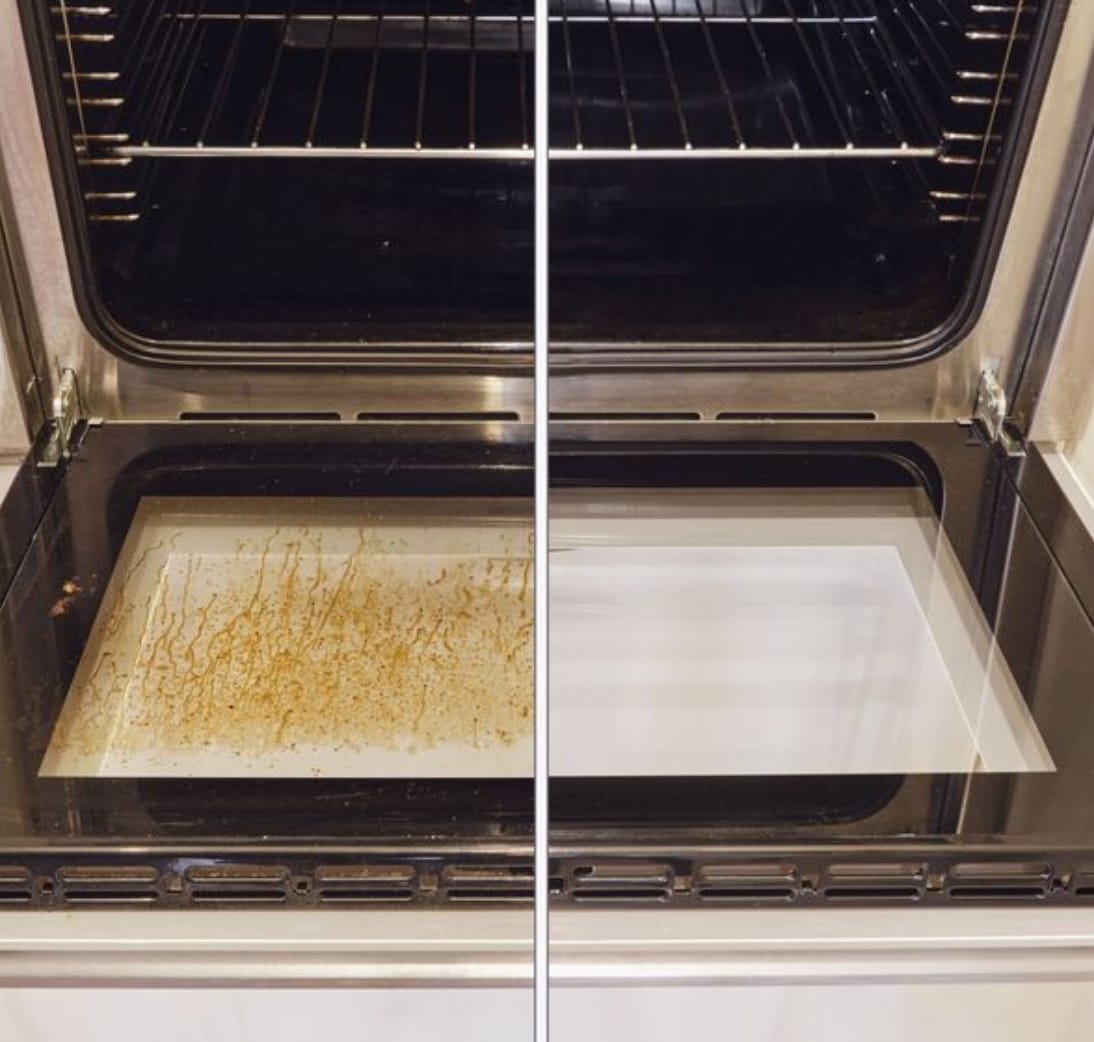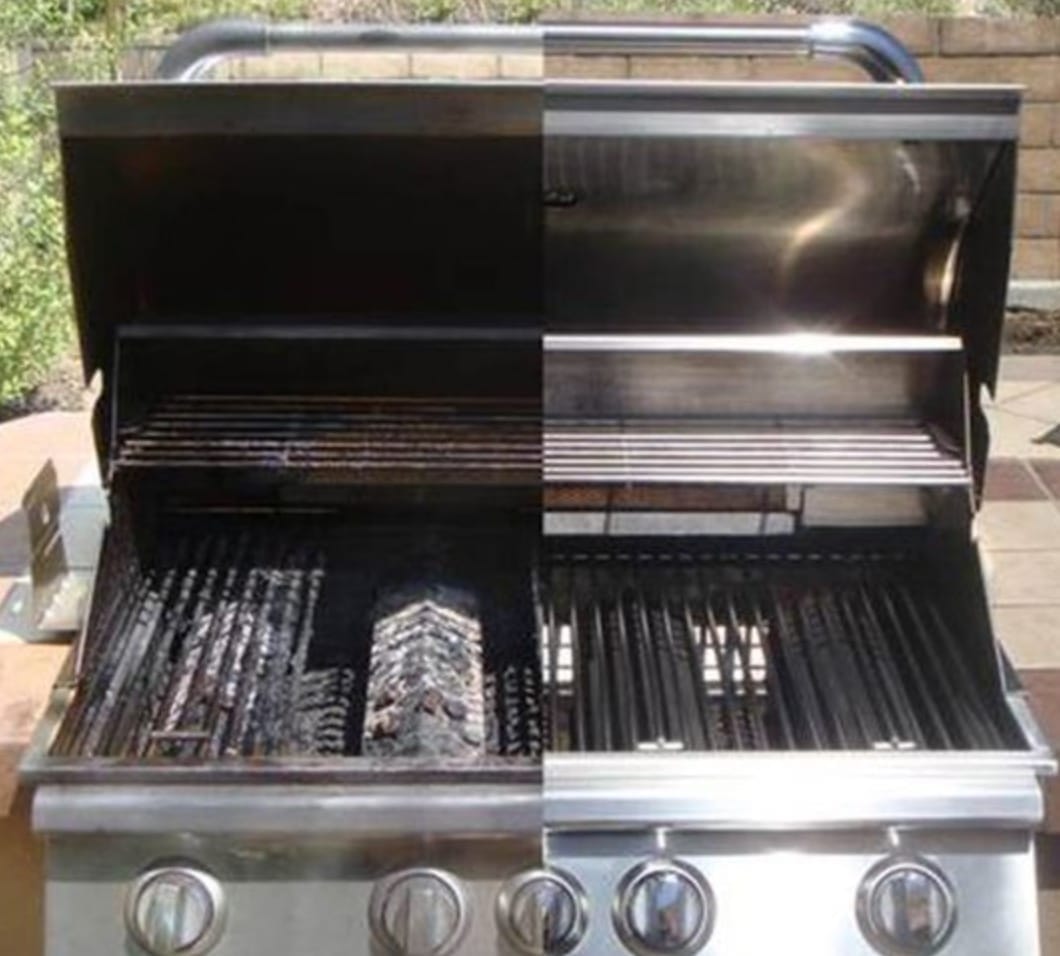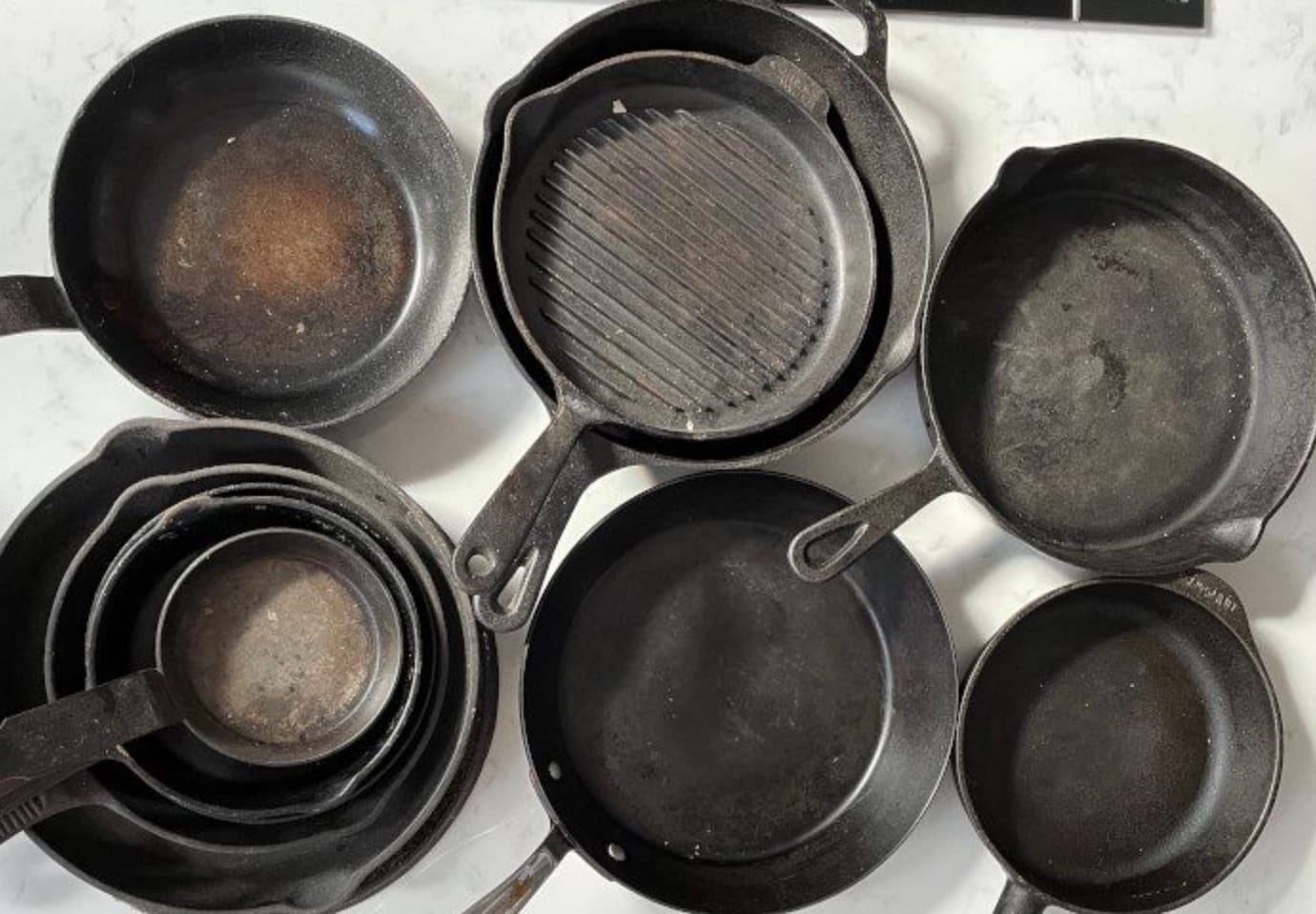
Cleaning the Tough Stuff
Cleaning the Tough Stuff
Cleaning can often feel like a daunting task, especially when it comes to tackling the heavy hitters like ovens, BBQs, rust, and cast iron cookware.
Many of us reach for harsh chemical sprays and pricey specialty products, thinking they're the only solution to these stubborn messes.
But what if you could achieve the same spotless results using simple pantry staples and a little elbow grease?
This post guides you through the process of natural cleaning, showing how to ditch the store-bought cleaners and make your own effective solutions at home.
With a handful of everyday ingredients and some patience, you'll find that even the toughest cleaning jobs are manageable without compromising on safety or breaking the bank.
For more tips on caring for cast iron cookware, check out this helpful discussion on Reddit.## Why Ditch the Store Cleaners

Let's explore why making the switch to natural cleaning methods is not just a trend, but a smart choice for your health, the environment, and your wallet.
Health Risks of Harsh Chemicals
Store-bought cleaners often contain harsh chemicals that can pose serious health risks. Many oven cleaners, for example, contain sodium hydroxide (lye), which is extremely caustic and can burn skin and eyes.
Inhaling these fumes, especially in enclosed spaces like ovens, can be dangerous. The off-gassing from these products can linger long after use, potentially exposing you and your family to harmful chemicals.
Long-term exposure to these substances has been linked to respiratory issues, skin irritation, and other health concerns. By switching to natural cleaning methods, you can significantly reduce these risks and create a healthier home environment.
Environmental Impact on Water Systems
Commercial cleaning products don't just affect our immediate living spaces; they have far-reaching consequences for our environment, particularly our water systems.
Many degreasers and rust removers contain petroleum-based solvents that are harmful to septic and greywater systems. When these chemicals enter our waterways, they can have devastating effects on aquatic life.
Acidic commercial rust removers can strip protective coatings from pipes and etch metal, potentially leading to leaks and contamination.
By opting for natural cleaning solutions, we can help protect our water resources and the ecosystems that depend on them.
Cost-Effectiveness of Natural Ingredients
Switching to natural cleaning methods isn't just good for your health and the environment - it's also great for your wallet.
Many "specialty" cleaning products can cost between $5 and $15 per bottle for something you might only use once every few months.
In contrast, pantry staples like baking soda, vinegar, salt, and lemon can do the same job for mere cents. These ingredients are versatile and can be used for multiple cleaning tasks around the home.
By making your own cleaners, you're not just saving money on individual products, but also reducing the need for a variety of specialized cleaners cluttering up your storage space.
It's a win-win for both your budget and your home organization.
DIY Cleaning Recipes

Now that we understand why natural cleaning is beneficial, let's dive into some practical recipes and techniques you can use at home.
Oven and BBQ Cleaning Techniques
Cleaning ovens and BBQs can be daunting, but with these natural methods, you can tackle even the toughest grime without harsh chemicals.
For ovens, try this simple baking soda paste method:
Mix 1/2 cup baking soda with enough water to make a spreadable paste.
Remove oven racks and coat the interior with the paste (avoid heating elements).
Leave overnight, then spray with vinegar the next day.
Let it fizz, then wipe away the grime.
For BBQ grates, a similar approach works wonders:
Sprinkle a mixture of 1/2 cup baking soda and 1/2 cup washing soda over cooled grates.
Pour boiling water over the surface.
Let soak for 15-20 minutes, then scrub with a BBQ brush or non-scratch pad.
These methods are effective, safe, and much more affordable than store-bought cleaners.
Rust Removal with Pantry Staples
Rust can be a stubborn problem, but you don't need harsh chemicals to tackle it. A simple lemon and salt paste can work wonders on rusty surfaces.
Here's how to make and use this natural rust remover:
Cover the rusted area with coarse salt.
Squeeze lemon juice over the salt to form a paste.
Let the mixture sit for 2-3 hours.
Scrub with steel wool or a brush, then rinse and dry thoroughly.
This method is particularly effective for smaller items or spot-treating rust. The citric acid in the lemon juice works to dissolve the rust, while the salt acts as a gentle abrasive.
Remember, always dry metal completely after cleaning to prevent rust from returning.
For larger items or more severe rust, you might need to repeat the process or seek professional help.
Caring for Cast Iron Cookware
Cast iron cookware requires special care to maintain its seasoning and prevent rust. The good news is, you can clean and care for your cast iron using simple, natural methods.
For everyday cleaning:
Wipe out crumbs with a paper towel.
For stuck bits, sprinkle salt and scrub with a damp cloth or brush.
Dry completely (stovetop heat works well).
Rub a thin layer of cooking oil over the surface to maintain seasoning.
Avoid using soap or soaking cast iron in water, as this can strip the seasoning. If rust does develop, use the lemon and salt method described earlier, then re-season the pan.
For more detailed guidance on cast iron care, check out this helpful guide.
Pro Tips for Natural Cleaning

Let's wrap up with some expert advice to make your natural cleaning journey more effective and enjoyable.
Patience and the Right Tools
When it comes to natural cleaning, patience truly is a virtue. Unlike harsh chemical cleaners that work quickly but potentially dangerously, natural methods often require a bit more time to be effective.
Allow pastes and soaks to do the heavy lifting. For example, leaving a baking soda paste on your oven overnight gives it time to break down tough, baked-on grime.
Using the right tools is equally important:
Non-scratch pads for coated metal surfaces
Steel wool only for bare metal or cast iron reconditioning
Scrub brushes for BBQ grates and other tough jobs
Remember, the goal is to clean effectively without damaging surfaces. Sometimes, a soft cloth and a little extra time can be more effective than aggressive scrubbing.
Protective Gear and Safety
While natural cleaning methods are generally safer than harsh chemicals, it's still important to protect yourself during cleaning tasks.
Wear gloves for prolonged scrubbing to protect your skin from abrasives and to keep your hands from drying out. This is especially important when working with acidic ingredients like lemon juice or vinegar.
When cleaning in enclosed spaces like ovens, ensure good ventilation. Even natural cleaning products can produce fumes that might cause discomfort if inhaled in large quantities.
Lastly, always label your homemade cleaning solutions clearly and keep them out of reach of children and pets. While the ingredients are natural, they're not meant for consumption.
For more tips and tricks on natural cleaning, join a Facebook community like this one, where members share their experiences and favorite recipes.
BY MOJO HOMESTEAD











